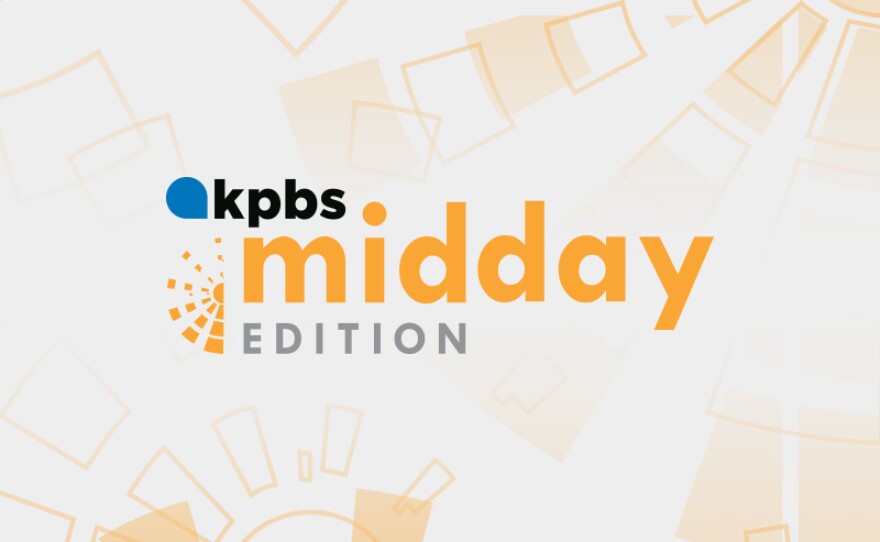A Draft Of California's Ethnic Studies Curriculum Stirs Controversy
Speaker 1: 00:00 A draft of California's ethnic studies curriculum is out and critics are calling for changes right now. The public comment period on the proposal is open through tomorrow while the legislature considers a bill that would make the ethnic studies a graduation requirement for high schoolers. Statewide. Nina agro wall is an education reporter with the Los Angeles Times. She's been covering this. Nina, welcome. Thank you for having me. So first, for those who aren't familiar with ethnic studies courses, can you explain what they are generally? Speaker 2: 00:31 Sure. Ethnic studies courses offer instruction on the experience of minority groups in the u s and traditionally these have been framed around four minority groups, Latinos, Asian Americans, African Americans, and indigenous peoples and supporters say that these courses really are meant to provide a counter narrative to the dominant narrative that's provided in a kind of Eurocentric curriculum. Speaker 1: 00:56 So then give us a sense of what the proposed ethnic studies curriculum looks like. Speaker 2: 01:00 Sure. While the curriculum is hundreds of pages. So it offers some description on the overview and the need for these curriculum. And it also offers some sample courses and lessons which focus on these four groups that I described and as well as including coursework specific to Arab Americans, Pacific islanders and Central Americans. There is a glossary, um, attached with the curriculum and it, you know, breaks down some of the language that is used to define kind of specific terms using this creek in, in this field. Um, so for example, instead of history history or h x, r, s, t, O, r y, um, which are both meant to provide a more gender inclusive framework for teaching history. Also the term CIS Hetero Patriarchy to describe a system of power that is based on kind of the dominance of men who identify, uh, as the sex that they were assigned at birth. Speaker 1: 02:04 And So San Diego unified, for example, wants to make ethnic studies a graduation requirement by 2022 and at least two schools currently offer ethnic studies. Is the idea for this draft curriculum to be used as a guide by districts who are in the process of developing their own programs? Speaker 2: 02:23 Yes, basically. Um, it's a model curriculum. It's not a requirement yet. It's meant to be a guideline for districts that are interested in offering an ethnic studies curriculum. This would provide them with a curriculum. Um, if they already offer some other standards based curriculum, they could offer that. And if they want to integrate some ethnic studies lessons into existing social science coursework, this would also offer a way to do that. Speaker 1: 02:49 Now, Jewish lawmakers and a number of other groups are coming out against the draft curriculum. What are they saying? Speaker 2: 02:55 Yeah, so the Jewish legislative caucus wrote a letter to state education officials in which they criticize their curriculum and they said they felt it was antisemitic and excluded Jews and important minority in the u s um, from this curriculum. And specifically they honed in on the inclusion in the curriculum of a definition and lesson material related to the boycott, divestment and sanctions movement, and also the exclusion of the term antisemitic or antisemitism from the glossary. There's also criticism just on the, along the lines of this is politically motivated and will indoctrinate students within a specific ideology, you know, that it's anticapitalist and that the focus will not be on instruction or on the experience of these communities, but more on promoting a specific, uh, political ideology. Speaker 1: 03:49 And generally what are the benefits of ethnic studies courses. Speaker 2: 03:53 So there has been a fair amount of research, um, which shows that, you know, this can improve achievement, especially for, you know, diverse learners. But on the individual level, you know, I spoke to several students who really said that ethnic studies, they're either they're high school or college coursework really was the first time that they felt represented that they felt that their stories and their own histories mattered, that they felt they could connect to their learning. Um, and so for many students, that is a very powerful experience. I mean, I think the reason there's a lot of interests or one reason there's a lot of interest and support for this curriculum at this time is because of, or a lot of racially motivated violent attacks and the concern that people really don't understand one another's experiences. And that, uh, curriculum that helps students understand the experience of other, um, minority groups may help bridge some of those gaps. Speaker 1: 04:49 State Superintendent Tony Thurman to address some of those concerns this morning. Uh, has he talked about making changes? Speaker 2: 04:57 Um, you know, I'm not completely sure what the superintendent's plans are. I know the board of Education has said that they will be revising the curriculum substantially. It is a draft and it's a open for public comment now, but then after the instructional quality commission reviews it, it would be going to the board and the, um, they're not scheduled to approve a version until next spring. So there's plenty of time for drafts revisions. Speaker 1: 05:23 I've been speaking with Nina agro, wall education reporter with the Los Angeles Times. Nina, thank you so much. Thank you so much. Speaker 3: 05:36 [inaudible].


